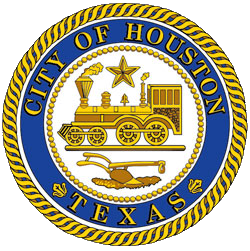The COVID-19 pandemic revealed the vulnerability of individuals who are homeless and have mental illnesses. It is not only the unhealthy conditions on the streets that make the unsheltered homeless “at-risk” to COVID-19; most suffer from underlying, chronic health conditions.
An estimated 15-25 percent of individuals experiencing homelessness throughout Harris County and the greater Houston area suffer from severe mental health issues making it difficult for city, county and local partners to quickly assist and house them out of harm’s way. Social distancing requirements have also reduced homeless shelter capacity. These extremely acute individuals have a large impact on first responders and hospitals by routinely requiring emergency intervention. These individuals increase the risk of COVID-19 exposure to first responders and the community.
Both the City of Houston and the Harris County Commissioners Court are each investing $5 million toward the new COVID-19 Homeless Respite and Rehabilitation Center to fill this need in our community. The new facility, which will be operated by The Harris Center for Mental Health and IDD, will implement a key recommendation of the Harris County Homeless Taskforce.
“Individuals suffering from severe mental health issues while experiencing homelessness are some of our most vulnerable during the pandemic. They are someone’s child, parent, and family member. This groundbreaking facility will enable mental health experts to connect with them, so they are permanently housed and out of harm’s way,” said Houston Mayor Sylvester Turner. “The public health threats and challenges of COVID-19 require that we move beyond programs that will create only incremental change, and instead focus collectively on projects, like this needed facility, that will produce a significant change for all Houston and Harris County residents.”
Harris County Judge Lina Hidalgo added, “The cycle of crisis that defines homelessness has only worsened in a pandemic and economic downturn. This facility will bridge the gap for individuals with mental or behavioral needs until they reach a place of stability— where they can be housed in permanent housing instead of being released back into the streets. This is part of a multi-faceted effort and multi-million dollar investment in a new paradigm for addressing this intractable challenge.”
“Since creating a historical collaboration, Harris County and the City of Houston continue to be proactive and innovative in managing homelessness in our area. This latest partnership between the county, city, along with program managers at the Harris Center, devotes ongoing resources to invest in this center. It shows we are forward-thinking and not satisfied with band-aid solutions, nor will we allow for displacement to be any part of our strategy anymore. We can’t keep treating mental and addiction issues exclusively in the Harris County Jail where taxpayers are paying far more than necessary for much needed treatment. This will help stop the Sheriff’s Department from being the largest mental health provider in the state. I thank my colleagues for their votes to approve the funding, the City of Houston for their investment, and the Harris Center for their support in adopting a fresh approach to treating homelessness. This gives our neighborhoods needed relief from this issue,” said Harris County Commissioner Adrian Garcia (Precinct 2).
Texas State Representative Garnet Coleman (House District 147), a long-time champion for persons with mental illness, was instrumental in the creation of and securing funding for the center from a state matching grant program, the Healthy Community Collaboratives program. This funding focuses on housing solutions for persons with mental illness and who are homeless. Representative Coleman elaborated, “I’m proud of the work that my colleagues and I have done to find long term solutions to treat mental illness and address homelessness in Texas, and specifically Houston through public policy in the Texas Legislature. COVID-19 has shown vulnerabilities in all of our communities, and this funding will help mitigate the challenges created by the pandemic.”
Harris County Commissioner Rodney Ellis (Precinct 1) spoke of the need for the center’s services, “Harris County’s $5 million investment towards the COVID-19 Homeless Respite and Rehabilitation Center will provide an important and sorely needed resource for people who are experiencing homelessness and suffering from severe mental health issues in our community. Without proper care, support and stable housing, vulnerable communities often cycle in and out of emergency rooms, hospitals, psychiatric centers, and detoxification programs. These revolving doors result in increased costs to the public and poor health outcomes. I’d like to thank the Harris Center, the Homeless Task Force, and our community’s entire homeless response team for their leadership. I look forward to seeing positive outcomes from this facility.”
Wayne Young, CEO of The Harris Center added, “Our community experts came together and identified this as a need in our community. The new center will use evidence-based practices and focus on intensive services and transition to ongoing rehabilitation stages for a more holistic approach to caring for those at the nexus of homelessness, mental illness and criminal justice involvement. Our cutting-edge services will help support our clients’ ability to function more independently in the community.” The center’s broad array of services will include step-down residential care for those discharging from psychiatric hospitals, jail diversion, outpatient competency restoration, mental health housing, jail re-entry, and capacity for development of future services. All living spaces will include supportive and wraparound services.
The Harris Center is the state-designated Local Mental Health Authority and Local Intellectual and Developmental Disability (IDD) Authority serving Harris County, Texas. As the largest behavioral and developmental disability care center in Texas, The Harris Center provided care to over 79,000 people in fiscal year 2019. Learn more at TheHarrisCenter.org.
